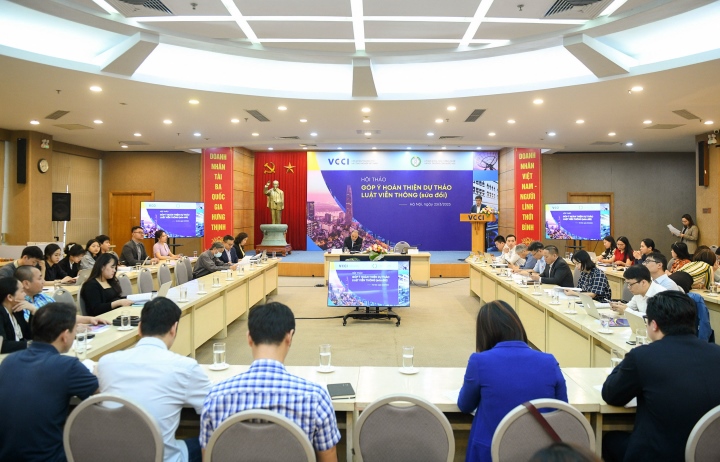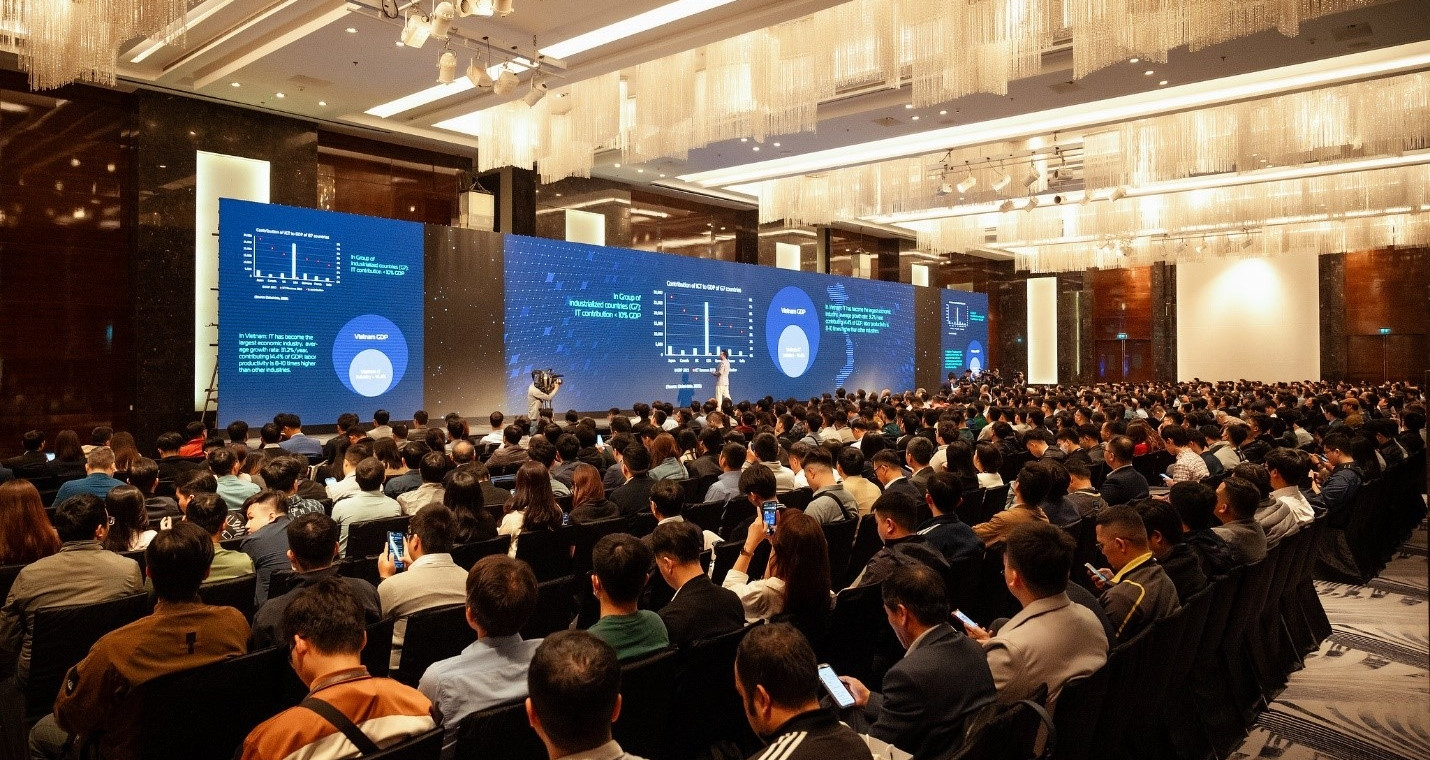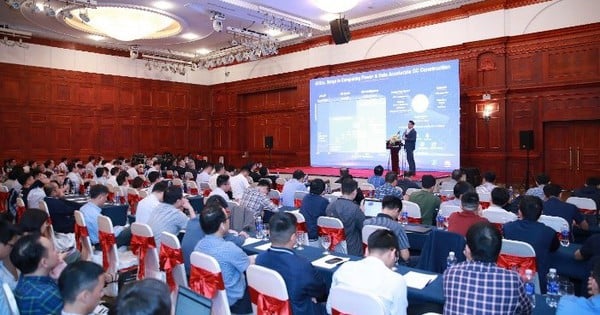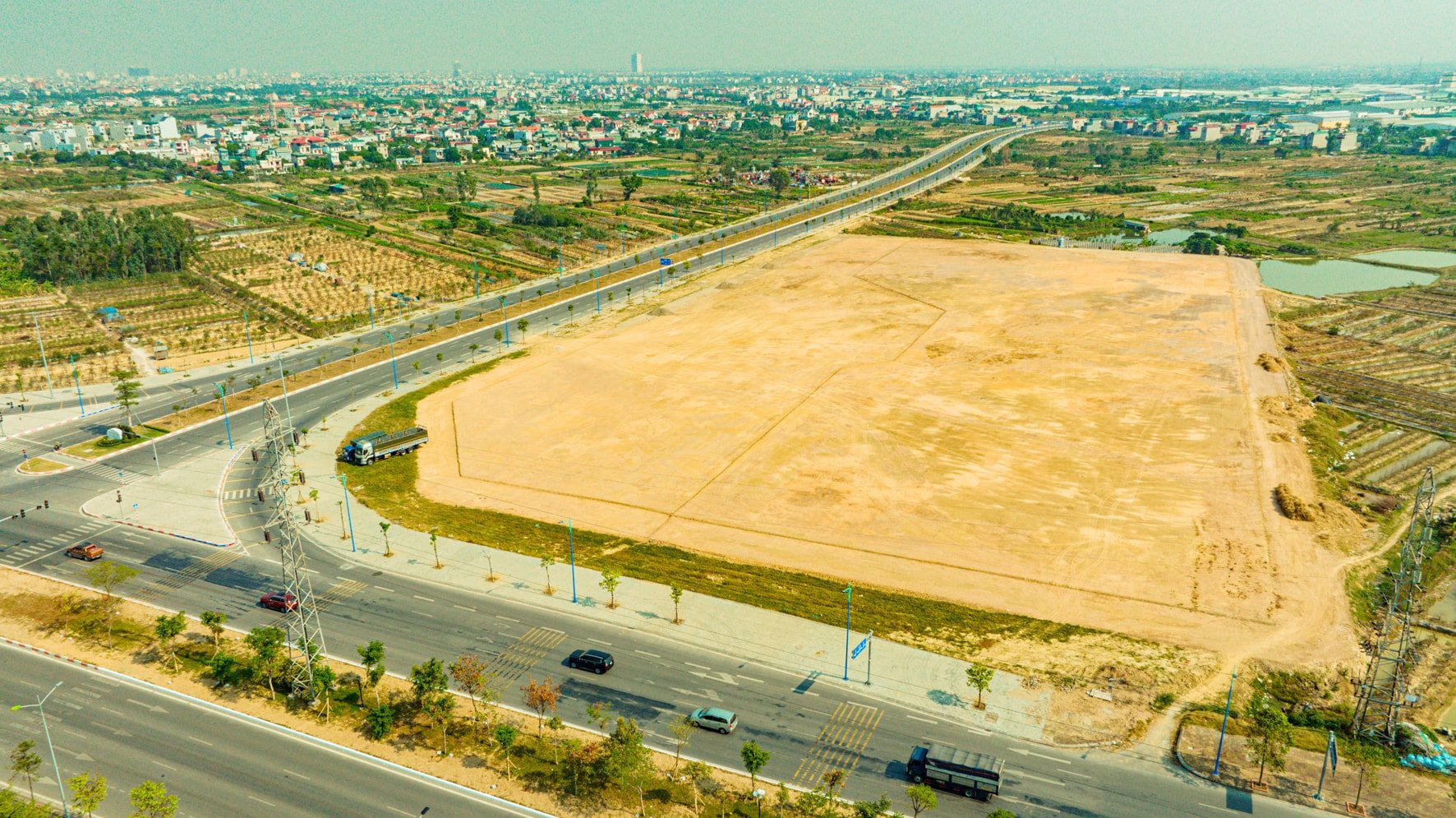Issued in 2009, after 14 years of implementation, the Telecommunications Law has revealed many shortcomings and needs to be amended and supplemented to better suit the development of the telecommunications industry. The draft Amended Telecommunications Law is being considered and discussed by the National Assembly at its 5th session.
Cloud computing will soon be law
One of the new points of the draft is the expansion of the scope of the law to include a number of new services, including data center and cloud computing services, in the group of telecommunications services.
This change causes great concerns for businesses and investors in these two types of services in Vietnam, as it may give rise to investment conditions, licensing procedures and foreign investor capital contribution ratios different from current regulations.

The workshop to contribute ideas to complete the draft Law on Telecommunications (amended) took place on March 23.
The inclusion of data center and cloud computing services in the telecommunications services group may entail the application of investment conditions and telecommunications licensing procedures as applied to other telecommunications services, thereby negatively impacting foreign investment in Vietnam, especially foreign data center service providers considering investing billions of dollars in domestic infrastructure.
According to free trade agreements that Vietnam is participating in such as WTO, CPTPP or EVFTA, Vietnam commits to maintain restrictions on access to the telecommunications market for foreign investors, except for value-added services that do not use physical facilities. However, according to the draft, not all types of cloud computing and data center services fall into the above service categories.
According to some recommendations from experts, instead of being regulated in the Telecommunications Law, data center (DC) and cloud computing services should be regulated in the Digital Technology Industry Law that the Ministry of Information and Communications is drafting.
This will encourage DC and Cloud to develop strongly and openly, breaking down investment restrictions and conditions, thereby enhancing Vietnam's competitiveness compared to other countries in the region, while increasing foreign investment attraction in these two types of services.
During the discussion at the National Assembly's group on June 10, National Assembly Chairman Vuong Dinh Hue also requested that the drafting agency study international experience in regulations on cloud computing services and data centers as well as carefully assess the impact of including these services in the draft to encourage investment and development in this field.
Potential of data center and cloud computing services in Vietnam
According to many strategists' forecasts, by 2025, the cloud computing market will be larger than the telecommunications market, helping to accelerate the digital transformation process.
Market research firm ReportLinker forecasts that the potential of the cloud computing market in Vietnam will reach 427 million USD by 2025.
Specifically, according to a 2021 survey by the Institute for Enterprise Value Research under IBM Corporation (USA), in Vietnam, 56% of businesses are using cloud computing services, while in the United States, 94% of businesses used this service in 2019. This shows the great potential of the market and demand for cloud computing services in Vietnam in the coming time.
In fact, according to domestic media, in the period 2020-2021, this market in Vietnam only reached about 4,500 billion VND. Therefore, Vietnam is a promising market for developing data center and cloud computing services due to the increasing demand of businesses, along with the development of the digital economy.
In the world and in the Asian region, cloud computing services and data centers are considered two essential services of the digital economy and countries are interested in building development orientations and strategies along with preferential policies to attract investors to these services.
Not only Vietnam but also many countries in the Asian region such as India, Malaysia, Indonesia, etc. have set the goal of developing into a Digital Hub/Data center Hub of the region and globally. These countries have introduced many policies to encourage and provide incentives for investment and development of data centers and cloud computing services. This reality requires Vietnam to have appropriate and clear policies to increase market competitiveness in mobilizing and encouraging investment in building infrastructure and developing these essential services.
How do Southeast Asian countries manage cloud computing?
Several research reports on international experience in managing cloud computing and data center services show that most countries do not regulate and manage these two types of services as telecommunications services because the nature of these services is different.
Cloud computing and data center services are accessed over telecommunications networks (or via telecommunications services) and are regulated under the general framework of existing laws on electronic games, websites, financial transactions, music and cinema.
For countries that have regulations governing data center and cloud computing services, they often follow the direction of applying technical standards built on the basis of international standards.
The technical standards that have been put in place also focus on the user data security aspect. According to the review, currently only a few countries regulate data centers and cloud computing as telecommunications services, however, almost no country has regulations restricting the provision of these two services across borders or restricting foreign investment ownership.
As Malaysia does not have specific regulations for cloud computing and DC services. Meanwhile, the country regulates cloud services under the Communications and Multimedia Act 1998 (CMA1998) and allows business participation in the development of technical regulations such as technical codes on data security based on international standards.
In Thailand, cloud services and data centers are not regulated as telecommunications services. In fact, Thailand modernized its telecommunications licensing framework in 2019-2020 to eliminate the need for a separate Internet Business License and clarify that data centers are not a type of telecommunications facility or intended to be regulated as such.
Currently, Singapore does not have any legal regulations on the classification of DC and Cloud services. However, both services are classified as “Infocomm and Communication Technologies infrastructure or systems” by the Personal Data Protection Commission (PDPC), and “information & communications technology services” by the Government Procurement Portal (GEBiz).
English
Useful
Emotion
Creative
Unique
Source


![[Photo] North-South Expressway construction component project, Bung - Van Ninh section before opening day](https://vstatic.vietnam.vn/vietnam/resource/IMAGE/2025/4/17/ad7c27119f3445cd8dce5907647419d1)
![[Photo] President Luong Cuong receives Ethiopian Prime Minister Abiy Ahmed Ali](https://vstatic.vietnam.vn/vietnam/resource/IMAGE/2025/4/16/504685cac833417284c88a786739119c)

![[Photo] Many practical activities of the 9th Vietnam-China border defense friendship exchange](https://vstatic.vietnam.vn/vietnam/resource/IMAGE/2025/4/16/3016ed3ef51049219574230056ddb741)
![[Photo] Opening of the 4th Summit of the Partnership for Green Growth and the Global Goals](https://vstatic.vietnam.vn/vietnam/resource/IMAGE/2025/4/16/488550ff07ce4cd9b68a2a9572a6e035)





























![[Photo] National Assembly Chairman Tran Thanh Man meets with Ethiopian Prime Minister Abiy Ahmed Ali](https://vstatic.vietnam.vn/vietnam/resource/IMAGE/2025/4/16/c196dbc1755d46e4ae7b506c5c15be55)






















![[Video] Viettel officially puts into operation the largest submarine optical cable line in Vietnam](https://vstatic.vietnam.vn/vietnam/resource/IMAGE/2025/4/17/f19008c6010c4a538cc422cb791ca0a1)





































Comment (0)